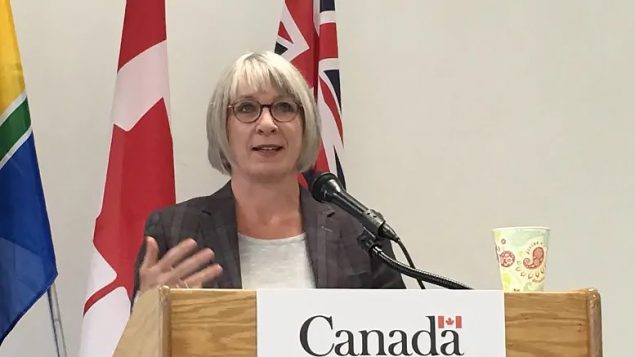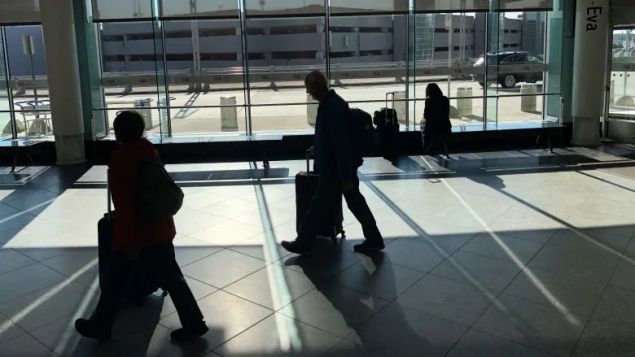A new front has been opened in the battle against COVID-19 in Canada, where–as of Thursday afternoon–36 people have now died and just under 3,400 cases remain active.
After closing its borders to most people from other countries, including asylum seekers, earlier this month, the federal government–as of midnight Wednesday–is mandating that all Canadians and permanent residents returning to Canada must go into self-isolation for 14 days.
Previously, they had only been urged to do so.
Penalties for failing to comply will be steep: up to $750,000 in fines and/or imprisonment for six months.
They are even stiffer–up to $1 million in fines and/or three years in prison–should someone jeopardize another person’s life “while wilfully or recklessly contravening the act.”

Those breaking the new rules face stiff penalties (Rémi Authier/CBC)
Health officials say spot checks will be conducted to enforce the measures, invoked under the Quarantine Act, legislation first passed in 1872 and updated in 2005 following the SARS outbreak in 2003.
The legislation supplies sweeping powers that range from routine screenings conducted by quarantine officers to issuing the mandatory isolation orders announced yesterday.
Health Minister Patty Hajdu said on Wednesday that all returning travellers would be barred from taking public transit or placing vulnerable people at risk to get to their place of self-isolation, adding that the government would assist with transportation and accommodation arrangements as needed.

Health Minister Patty Hajdu (pictured last year) announced the new measures on Wednesday. (Heather Kitching/CBC)
After the announced ban on public transportation caused confusion, Hajdu’s office sent out a press release late Wednesday night that clarified individuals “displaying symptoms of COVID-19 after arriving in Canada” may not use public transportation to travel to their place of isolation.
The new measures were invoked after women in Quebec and Newfoundland and Labrador were arrested for violating provincial orders requiring to stay at home after travel abroad.
“People are not understanding that this 14 days is absolutely essential to protect the health of their fellow Canadians,” Hajdu said. “… So there is perfect clarity around the need to isolate when Canadians come back from abroad whether it’s from the USA or other international destinations we are implementing the Quarantine Act so there is no confusion about the need to do so whether you are symptomatic or not.”
On Thursday, border officers began informing returning Canadians and permanent residents of the new orders.
“We’ve never, ever seen a quarantine order this broad or affecting so many people at once in Canada,” Steven Hoffman, director of the Global Strategy Lab and a global health law professor at York University, told the Canadian Press news agency.
“The Quarantine Act is always active. It’s being used all the time. “It’s just not always used in a very public way.”
With files from CBC (Catharine Tunney), Canadian Press (Michelle McQuigge), Government of Canada







For reasons beyond our control, and for an undetermined period of time, our comment section is now closed. However, our social networks remain open to your contributions.